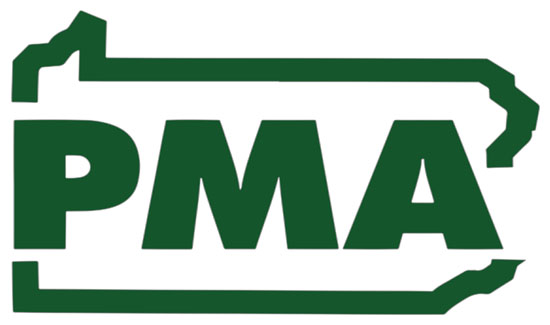2022 PA Leadership Conferences Focuses on Policy, Candidates

The Pennsylvania Leadership Conference (PLC), the annual Harrisburg gathering of Pennsylvania’s conservative activists, is indispensable for political enthusiasts. This year’s two-day event featured forums that included Republican candidates for U.S. Senator and Governor. But the PLC also offers commonsense panel discussions on topics that directly affect our economic and political freedoms – energy and voting rights among them this year.
This year, as PLC President Lowman Henry noted in his welcoming address, was the second best attended event ever. Henry, who also serves as Chairman of the PMA board of directors, will host next year’s event – mark your calendars – March 31 and April 1, 2023, in Harrisburg.
Attendance was only slightly less than the 2016 PLC; that fall, Donald Trump defeated Hillary Clinton for President. The draw this year was partly the anticipation of breaking the far left’s grip on power in November. Until then, even the most radical plans are still viable: an attempt to federalize all state election laws narrowly failed in the U.S. Senate. (Biden is picking up by executive fiat where Congress failed). Pennsylvania’s energy industry, which offers the greatest hope of future prosperity, is also under attack.
“The Biden Administration’s war on domestic energy production has intensified the inflation set loose by epic overspending,” said PMA President & CEO David N. Taylor, who also serves as Chairman of the PLC. “There’s no way to spin the economic realities that American consumers are feeling today. A reckoning is coming.”
The PLC straw poll on candidates for U.S. Senate went for conservative commentator Kathy Barnette, with 2018 GOP Lieutenant Governor nominee Jeff Bartos and former U.S. Ambassador to Denmark Carla Sands taking second and third.
Former hedge fund executive David McCormick and surgeon-turned-television personality Mehmet Oz ran fourth and fifth. All are seeking to succeed U. S. Senator Pat Toomey (R-Lehigh), who is choosing to retire after 12 years in the Senate. Toomey previously served in the U.S. House for six years.
For the Republican candidates for Governor, the poll had former federal prosecutor Bill McSwain, tied with state Sen. Doug Mastriano (R-Franklin).
Delaware County businessman Dave White was third, followed by Harrisburg lobbyist Charlie Gerow, former Congressman Lou Barletta, physician Dr. Nche Zama, former Congresswoman Melissa Hart, Senate Pro Tempore Jake Corman (R-Centre), and Montgomery County Commissioner Joe Gale.
The winner will run against the Democrat’s lone candidate: Attorney General Josh Shapiro to replace liberal Democrat Tom Wolf, who is term limited.
Wolf is concluding his eight years as Pennsylvania’s chief executive with a fanatical push to force Pennsylvania into a multistate electricity tax cartel: the Regional Greenhouse Gas Initiative (RGGI). Wolf’s RGGI electricity tax will destroy thousands of energy jobs in the state for no environmental benefit. The RGGI electricity tax will have a negative economic impact of $2.87 billion, according to the Power PA Jobs Alliance.
Last week, the Pennsylvania Senate fell just one vote short of stopping Wolf’s RGGI tax, but the Republican Caucus led by Majority Leader Kim Ward (R-Westmoreland) has won an injunction from Commonwealth Court to prevent it from taking effect while legal arguments are being heard. Legislative leaders have filed suit asserting that Wolf’s electricity tax is unconstitutional.
On the voting rights end, conservative leader Cleta Mitchell brought her touring Election Integrity Summit to the PLC.
The summits, she says, are a way of playing catch-up with the left, whose millions in dark money have been meddling in election procedures for at least the last ten years.
“We can’t match their money,” said Mitchell, Senior Legal Fellow at the Conservative Partnership Institute (CPI) in Washington. “What we can do is mobilize volunteers.”
Mitchell’s goal is to create an election integrity task forces in all 67 Pennsylvania counties to get volunteers, some as poll watchers, “to know the election laws and voting procedures.”
The effort in Pennsylvania, and other battleground states in the 2020 General Election, is to counter unsecure election procedures ushered in during the pandemic – including the expanded use of mail ballots and drop boxes.
A special focus, for Mitchell, is to clean up voter rolls.
In Pennsylvania, the Public Interest Legal Foundation (PILF), a public interest law firm focused on election laws that Mitchell chairs, has successfully sued the Commonwealth to remove thousands of deceased voters removed from the voting rolls.
More recently, a federal judge ruled that PILF may view documents from the PA Department of Transportation, documents that reveal the Department has allowed foreign nationals to register to vote for decades.
On the national level, Mitchell cites the efforts of Democrats in Congress to federalize the nation’s elections through sweeping voting laws – each of which have narrowly failed in the Senate. In response Joe Biden signed an executive order weaponizing federal agencies to increase voter registration and turn out.
“It’s not the job of a government agency to be concerned about voter turnout,” she said. “He’s (Biden) making the federal agencies an organ of the Democratic Party.”







